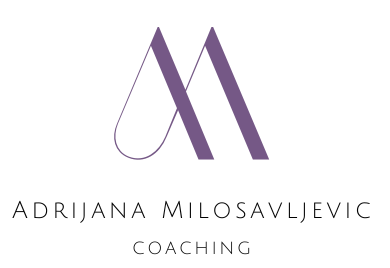“Am I truly equipped to coach? Do I possess the necessary skills after the training, and what if the opportunity to practice doesn’t arise soon?
How can we retain and effectively apply the knowledge acquired during our coaching training?”
These are the questions that emerged during our WellBe mentoring session among the group of adult educators who attended coaching training. It’s possible that these doubts could occasionally resonate within individuals in the coaching and and other supporting professions, sometimes leading to a sense of being an imposter.
Feeling inadequate or unnatural when trying to apply newfound knowledge is not uncommon. This occasional struggle with imposter syndrome can prevent our progress in this field. But although having this struggle, it’s essential to acknowledge and address these concerns for personal and professional growth.
Initiating with self-reflection instead of immediate self-criticism
Do you feel fake or not natural when trying to apply something new?
Questions group discussed which could be good to start with:
What is important to you?
What drives your pursuit of learning and application?
What outcomes are you striving for?
What feedback do you receive, beyond your self-criticism?
Is the support we are providing effective enough?
Facilitators shared examples and alternative perspectives beyond labeling oneself as an imposter. The group is encouraged to consider:
If you could describe yourself in a different way, without using the term imposter, what would it be?
The overarching need for effectiveness in supporting professions is emphasized—to deliver more, support better, and witness changes in our clients, validating our successful efforts.
Additionally, sometimes we take on all the responsibility ourselves and overlook the role clients should have in their own development.
Redesigning our Coach/Trainer Identity:
In a coaching approach, facilitators proposed two techniques to overcome the ‘imposter’ topic:
Community of Self: Using this technique, we view ourselves as a sum of many ‘selves,’ where each ‘self’ possesses different personalities and attitudes. And theme when we identify our different selves we try to answer these questions:
Who would take the spotlight during training?
Whom do we want to dominate?
How can we build or improve relationships between these different parts of ourselves?
What can we learn from them? What are they trying to tell us?
Another beneficial technique involves framing this collective as an ‘Inner Team‘, strategizing how this team (of many parts of us) can collaboratively help us achieve our growth goals.
The Role of External Validation and Recognition
A related discussion emerged about individuals identifying themselves as coaches. What do we need in order to call yourself a coach? Is the certificate/accreditation necessary? Group shared that to them it seems that everyone can label themselves as a coach, leading to the stigmatization of this title.
The primary focus of the discussion was on the application of learned approaches based on WellBe principles:
partnering, inclusion, growth, and agility to bring actual value.
Conclusions and Moving Forward
Pausing during training can be very useful, providing reassurance that we are on the right track. Taking a moment to check, ask for feedback, and implement changes on the go.
Relaxing more and enjoying the process without overthinking each step is vital. Learning to believe in the process and in ourselves.
Comparing ourselves with others has its pros and cons. Balancing learning from others to improve, while acknowledging that some showcase content just to sell services, should not discourage us.
The value of the training, mentoring, and content from the Wellbe handbook was reaffirmed, especially regarding the scaling technique—an excellent tool for initiating conversations and contextualizing discussions.
As this was the final group mentoring session on this project, the networking, exchange, and the ‘opportunity to flourish’ during this process, as one participant mentioned, were more than enough for a fulfilling closure.
Article and photo from WellBE blog




